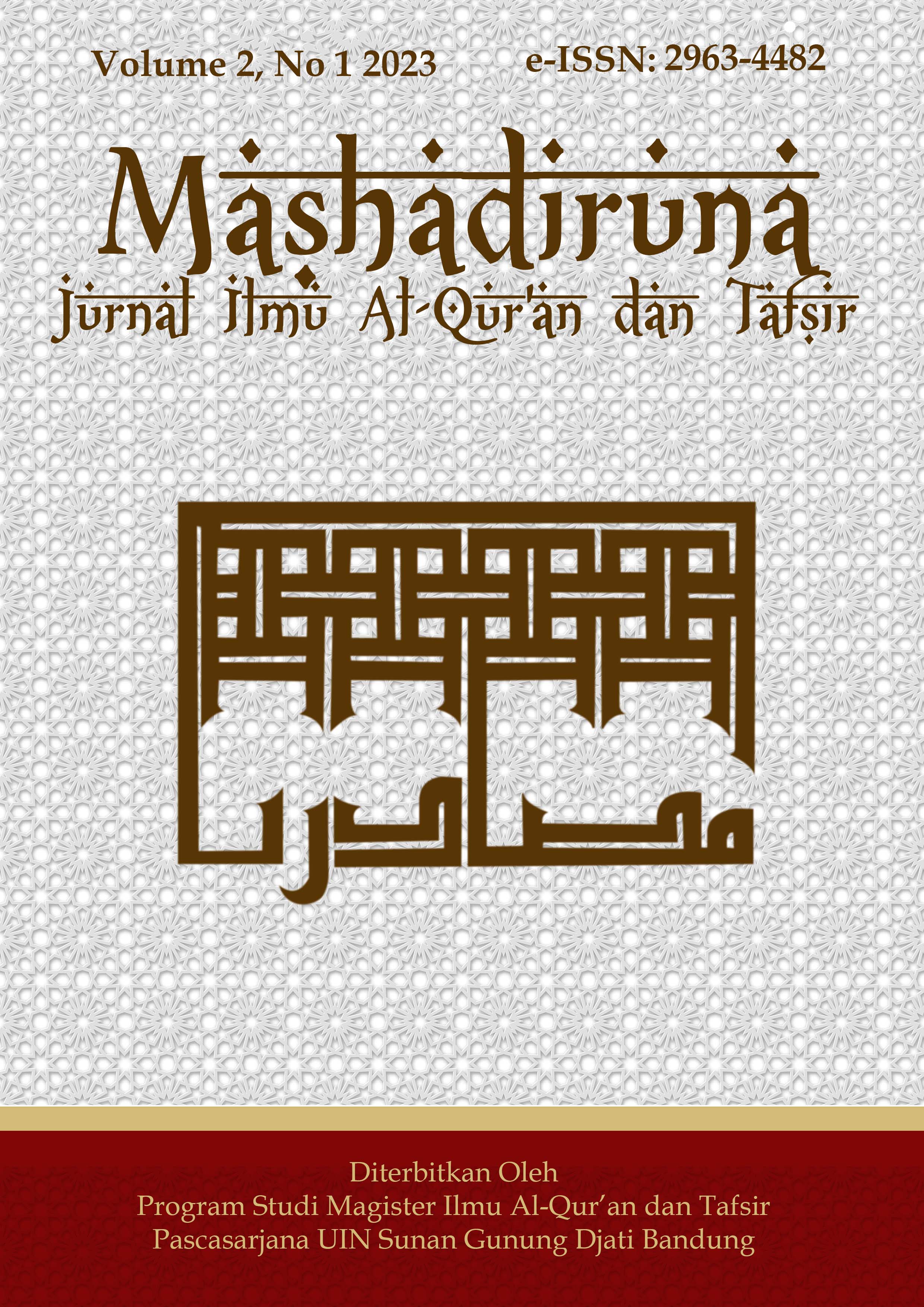Revisiting Tafsir Hukmi: Unraveling the Legal Interpretation of the Quran and Its Historical Evolution
DOI:
https://doi.org/10.15575/mjiat.v2i2.25302Keywords:
Legal Interpretation, Quranic Exegesis Books, Jurisprudence in Exegesis, Imam Madzhab.Abstract
This paper aims to delve deeper into legal interpretation (Tafsir Hukmi) by examining the history of the emergence of legal approaches in the interpretation of the Quran, defining the scope of the term, exploring debates among scholars, and providing examples of Quranic exegesis books adopting legal approaches. The research methodology used is a literature-based descriptive analysis with a historical and exegetical perspective. The results of the study show that legal interpretation (Tafsir Hukmi) is one of the Quranic interpretation styles that employ legal theories and approaches. This approach has its roots dating back to the time of Prophet Muhammad and continued to evolve with the emergence of the school of jurisprudence (Imam Madzhab) scholars who had varying interpretations of Islamic jurisprudence. The scope of the term “Tafsir Hukmi†encompasses discussions related to the Islamic legal laws in the Quran. Quranic exegesis books following the legal approach can be found within various schools of thought, including Shia Imamiyah, Shia Zaidiyah, Maliki, Hanafi, Hanbali, Shafi'i, and Zahiri.References
Az-Zahabi, M. H. (2003). Al Tafsir wal mufassirun, Jld. 1. Kairo: Maktabah Wahbah.
Baidan, N. (2005). Metodologi Penafsiran Al-Qur’an. Pustaka Belajar.
Gaffar, A. (2021). MANHAJ AL-MUHADDITSIN: Telaah Terhadap Metodologi Hasbi Ash-Shiddieqy Dalam Buku Koleksi Hadis-Hadis Hukum. Al-Mutsla, 3(2), 54–68.
Hasan, M. (2021). Al-Wasaţiyah al-Intiqâiyah al-Taqlîdiyah: Dirâsat Haula Harakâti wa Afkâri Kiâi Hâjî Hâsyim Asy’arî fî Fiqh al-Siyâsah al-Ijtimâ’iyah bi Indûnîsiâ. Al-Ihkam: Jurnal Hukum Dan Pranata Sosial, 16(2), 595–623. https://doi.org/10.19105/AL-LHKAM.V16I2.5309
Izzan, A. (2011). Metodologi Ilmu Tafsir. tafakur.
Khallaf, A. W. (1994). Ilmu Ushul Fiqh, terj. In Moh. Zuhri dan Ahmad Qarib. Semarang: Dina Utama.
Khallaf, A. W. (1996). Kaidah-kaidah Hukum Islam, Ilmu Ushul Fiqh, terj. Noer Iskandar Al-Barsany Dan M. Tolchah Mansoer, Cet, 6.
Lune, H., & Berg, B. L. (2017). Qualitative research methods for the social sciences. Pearson.
Mardjudo, A. B. (2006). Metode Ijtihad Imam Abu Hanifah. HUNAFA: Jurnal Studia Islamika, 3(4), 327–336.
Moeloeng, L. (2009). Metodologi Penelitian Kualitatif. PT Remaja Rosdakarya.
Mustaqim, A. (2011). Epistemologi Tafsir Kontemporer. PT. LKIS Printing Cemerlang.
Nugraha, S., & Basyiruddin, M. H. (2022). Merekontekstualisasi Tafsir Hukmi di Era Kontemporer. Jurnal Iman Dan Spiritualitas Volume 2 Nomor 3 (2022), 423.
Nuraini, N., & Zulaiha, E. (2022). Principles Methodology on Quranic Interpretation in Indonesia [Analysis on Interpretation Method of Tafsir Al-Azhar And Tafsir Al-Misbah]. Mashadiruna: Jurnal Ilmu Al-Qur’an Dan Tafsir, 1(1), 33–39.
Rahman, O., Gazali, M., Tafsir, R., Rahman, M. G., Program, M., Hukum, M. P., Pascasarjana, K., Sultan, I., Gorontalo, A., & Sultan, P. I. (n.d.). Tafsir Ideologi: Bias Idiologi dalam Tafsir Teologi Sunni, Muktazilah, dan Syiah. In Journal Hukum Islam (Vol. 1, Issue 2).
Shihab, M. Q. (2002). Tafsir Al-MishbÄh: Pesan, Kesan dan Keserasian Al-Qur’an (cet. 5). Lentera Hati.
Shihab, M. Q. (2006). Menabur Pesan Ilahi. Jakarta: Lentera Hati.
Taufiq, W., & Suryana, A. (2020). Penafsiran Ayat-Ayat Israiliyyat dalam Al-Qur’an dan Tafsirnya (E. Zulaiha & M. T. Rahman (eds.)). Prodi S2 Studi Agama-Agama UIN Sunan Gunung Djati Bandung.
Warraq, I. (2010). The origins of the Koran: classic essays on Islam’s holy book. Prometheus Books.
Downloads
Published
Issue
Section
License
Authors who publish with this journal agree to the following terms:
- Authors retain copyright and grant the journal right of first publication with the work simultaneously licensed under a Creative Commons Attribution License that allows others to share the work with an acknowledgment of the work's authorship and initial publication in this journal.
- Authors are able to enter into separate, additional contractual arrangements for the non-exclusive distribution of the journal's published version of the work (e.g., post it to an institutional repository or publish it in a book), with an acknowledgment of its initial publication in this journal.
- Authors are permitted and encouraged to post their work online (e.g., in institutional repositories or on their website) prior to and during the submission process, as it can lead to productive exchanges, as well as earlier and greater citation of published work (See The Effect of Open Access).
